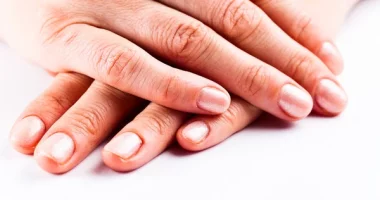
When you think of insomnia you’re thinking of someone who can’t sleep for a reasonable amount of time.
A typical complaint from an insomniac is not being able to close their eyes or rest their minds for over a few minutes at a time.
There are many reasons for this because Insomnia affects people differently. However, the common causes of insomnia are:
Common causes of Insomnia
- Anxiety disorder – Anxiety may cause sleeping problems or make existing problems worse. Too little sleep affects mood, contributing to irritability and sometimes depression.
Vital functions occur during different stages of sleep that leave you feeling rested and energized or help you learn and forge memories. Sleep usually improves when an anxiety disorder is treated and exacerbates the problem when untreated. - Bipolar disorder – Poor sleep is associated with a negative mood in women with bipolar disorder, according to researchers.
Bipolar disorder is a brain disorder that causes unusual shifts in mood, energy, activity levels and the ability to carry out day-to-day tasks. The condition is marked by extreme mood episodes characterized as manic (highs), depressive (lows) or mixed. - Excess activity or Stress – Can impact your life in many ways, including negatively affecting the quality of your sleep.
It becomes difficult to get quality sleep when you are physically or mentally stressed. Thinking of what the next days activity will be like and how to make it productive can affect your sleep.
It’s no wonder people use the phrase “losing sleep over something.”That’s also why people who suffer from chronic stress day in and day out sleep less or have poorer sleep quality. They somehow find it harder to function well during the day. - Physical pain – People with pain also have less control over their sleep, worry more about lack of sleep affecting their health and exhibit greater sleep sensitivity.
They’re more likely than others to say environmental factors make it more difficult for them to get a good night’s sleep. - Alcohol and Tobacco – Some people smoke in order to relax before bed, but the truth is relaxation is far fetched from taking it. In that experience, they’re actually telling their bodies to do just the opposite.
Nicotine found in tobacco products increases your heart rate and alertness, so you feel more awake when you’re trying to fall asleep.
The less sleep you get, the more sleep deprived you become. Alcohol on the other side may help you fall asleep, but it prevents deeper stages of sleep and often causes awakening in the middle of the night. - Caffeine – Coffee, tea, cola and other caffeinated drinks are stimulants that can have obvious disruptive effect on your sleep.
One study also found that caffeine can delay the timing of your body clock. These effects will reduce your total sleep time.
Caffeine also can reduce the amount of deep sleep that you enjoy. Drinking them in the late afternoon or evening can keep you from falling asleep at night.
Another study found that consuming caffeine 6 hours before bedtime reduced total sleep time by 1 hour. These effects also can be stronger in older adults. It takes their bodies a longer time to process caffeine. - Medical Conditions – The stress of chronic illness can also cause insomnia and daytime drowsiness.
Common conditions often associated with sleep problems include heartburn, diabetes, cardiovascular disease, musculoskeletal disorders, kidney disease, mental health problems, neurological disorders, respiratory problems, and thyroid disease. - Food starvation – There is a strong existing relationship between starvation and sleep. Scientists at Washington University in St. Louis found that starvation allows the need for nourishment to push aside the need for sleep.
Studies in other labs also showed that starvation or, in the case of human volunteers, fasting leads to less sleep.
More recent research has also shown that starvation can change the activity levels of genes that manage storage and use of lipids.
Symptoms of Insomnia
- Difficulty falling asleep at night
2. Waking up at intervals during the night
4. Feeling like has less sleep previous night
5. Feeling low of energy during the day
6. Irritability, depression or anxiety
7. Unable to focus or pay attention to details or task
8. Increased errors or accidents
9. Mentally unstable due to worry of not being able to sleep
Types
- Transient insomnia – is temporary insomnia that lasts from one night to a few weeks. This can involve a single episode of poor-quality or unrefreshing sleep or recurring episodes of insomnia separated by periods of normal sleep.
- Acute Insomnia – is the inability to sleep well for a single period of 3 weeks to up to 6 months
- Chronic Insomnia – is essentially long term insomnia, one that can last for months and years. It’s estimated that 1 in 10 people suffer from this type of insomnia, so it’s surprisingly common.
At this stage of insomnia, you’re likely to be suffering from a range of sleep deprivation effects, becoming a fraction of the person you could be.
Natural treatment for Insomnia
Finding the underlying causes of Insomnia is key to finding a cure for this problem. There are options to treat insomnia, the most common is the use of sleep-enhancing pills.
However, it is recommendable to try out natural methods mentioned first, then proceed to a medicinal solution if symptoms persist.
1. Stay mentally calm
There are many relaxation techniques that can help you calm your mind throughout the day and improve sleep.
Mindful meditation, yoga, and breathing exercise can help you stay calm, but it can also be as simple as taking a walk when you have a short break at work.
If you practice techniques for calming your mind during the day, then it will be easier to trigger your relaxation response at night.
2. Turn all electronics off or keep them away
Your phone, tablet, and TV emit light that keeps your brain awake, so try to limit them an hour before bedtime.
Checking email or doing work right before bed can also trigger anxious thoughts and make it difficult to calm your brain.
Consider setting an alarm to remind you to shut screens off at an adequate time before bed. Instead, consider listening to music or reading a book to quiet your mind.
3. Time and limit alcohol and tobacco intake
Consuming alcohol and tobacco close to bedtime can also increase your heart rate and keep you up.
When you take a moderate quantity of alcohol during the day, drink plenty of water throughout the day to stabilize your system.
Also avoid drinking too much water before bedtime, as trips to the bathroom can keep you anxious and alert.
4. Make your sleep environment conducive
Turn off light, control sound, and temperature for you to sleep better.
The darker, quieter, and cooler you can keep your bedroom, the greater chance you have of calming your mind and falling asleep.
Taking a shower or bath shortly before bed can also help lower your body temperature and help you fall asleep more quickly.
5. Reduce caffeine
Drinking too much caffeine or consuming it too late in the day can increase anxiety and inhibit sleep. So avoid drinking much of caffeinated drinks and if you must do it during the early hours of the day.
6. Exercise mildly
Exercise has been found to both lower anxiety and improves sleep. But try not to exercise right before sleep, as it can keep you awake.
Moving your body in the morning or afternoon can help you get your sleeping and waking cycle back on track and also treat insomnia or other related sleep disorder.
7. Treat wounds on time
Ensure to treat all wounds or cuts on time to avoid the pains depriving you of quality sleep. Take some time off to see your doctor whenever you have physical cuts.
Experts Advice
If you suspect further persistent after trying out the natural treatment method, visit a primary care physician, mental health professional, or sleep disorders clinic.
Where you would access other treatment options including sleep medicine and cognitive-behavior therapy, which teaches how to identify and modify behaviors that perpetuate sleeping problems.
Summary
Insomnia is a sleep condition that puts people in a state of not finding or falling asleep easily. Insomnia affects people differently depending on the individuals’ type and cause.
The types are three but the causes are more and can be treated naturally with the natural method mentioned.
However, visit a specialist hospital if symptoms continue after administering natural treatment.









